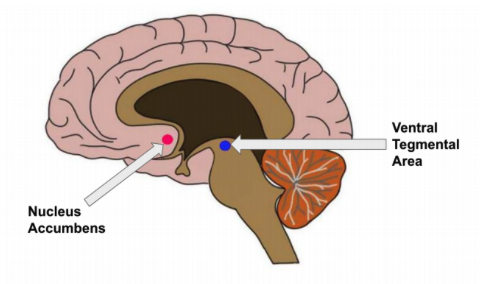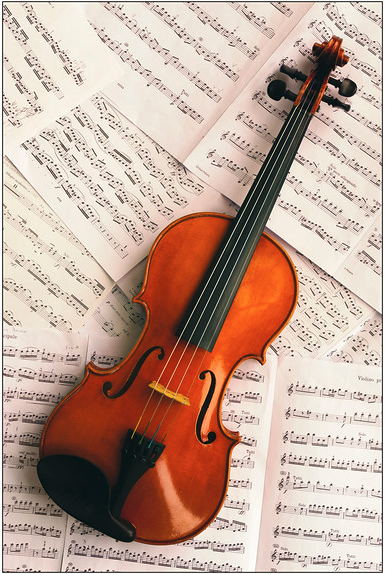
What’s your favorite song? Can you picture a specific time or place that makes that song so special? Music has been incorporated into the lives of humans for hundreds of years. We know how it can make us feel, whether it’s screaming in your ears as you push up on the bench press for your new personal record at the gym or as it’s gently swaying back and forth in the background as you are studying for an upcoming exam, music seems to be used in everyday life, and for good reason! Recent studies are beginning to specifically explore just why our brain likes music so much, so that is what we will find out below along with a brief analysis of if playing an instrument or listening to music seems to be more beneficial to your brain!
The Neurochemistry of Music
If someone has ever told you “music is medicine”, they might not be completely wrong! In recent years, there has continued to be additional amounts of information regarding the positive impacts that music has through neurochemical changes in the brain. One way music affects us is through reward, motivation and pleasure. Certain songs and/or noises can instantly evoke powerful emotions ranging from happiness to sadness to even a state of reminiscence. This has been stated as one of the main reasons as to why people even listen to music. Inside the brain, it has been shown that during this process, there is a dump off of dopamine at places such as the VTA and NAc that provide us with that pleasurable feeling  that medication such as opioids do. This in part is why music has been shown to be capable of triggering short-term behavioral changes while also temporarily inhibiting feelings such as stress and/or anxiety. In fact, music that is non-lyrical with a low pitch and/or slow tempo (types that I personal enjoy listening to while studying) have been shown to be most effective at reducing stress and anxiety!
that medication such as opioids do. This in part is why music has been shown to be capable of triggering short-term behavioral changes while also temporarily inhibiting feelings such as stress and/or anxiety. In fact, music that is non-lyrical with a low pitch and/or slow tempo (types that I personal enjoy listening to while studying) have been shown to be most effective at reducing stress and anxiety!
A few other areas that music has been shown in improve are immunity and social interactions. Having the ability to partake in creating music or simply just listening have both shown to decrease inflammation within the body as well as boosting the immune system overall! Social health has also seen an increase in those who listen to or create music together. Neurochemicals such as oxytocin and vasopressin are presented in the body which seems to establish and maintain positive feelings and reduce stress– so keep up with those weekly group-garage band sessions with your friends! There is still currently ongoing research in each of these areas, as we still cannot be certain that it is solely music alone causing these impacts on our emotions and body, so hold off on telling your mom that you only have to listen to music in order to feel better the next time you catch the flu!
Playing versus Listening
Okay, so whether you skipped down to this section of the post immediately after reading the final line of the introduction or have read the blog to its entirety up to this point, it is now time to see what benefits our brain the most: playing an instrument or listening to music. So, what do you think? Ultimately: playing an instrument has generally shown to be more beneficial to your brain than listening to music. Of course, there will be a select number of individuals who have more benefits through listening, but this is what covers the majority of individuals. There are two factors that this largely comes down to. The first being that playing an instrument is normally far more of an active process than is listening to music. Your fingers and hands are usually both doing different things at the same time while your eyes dart across the sheet music. Most of the time when music is on, the only “active” thing we do is sing along and that can be thought of as more of a pleasurable aspect versus “testing” your brain to see how accurate you can be on wording and pitch. Researchers have been quoted as saying how this process “engages every major part of your central nervous system”. It has also been shown to relieve stress and bring people together even more than just listening to music does. A short video description of the two can be found here!
Of course, there will be a select number of individuals who have more benefits through listening, but this is what covers the majority of individuals. There are two factors that this largely comes down to. The first being that playing an instrument is normally far more of an active process than is listening to music. Your fingers and hands are usually both doing different things at the same time while your eyes dart across the sheet music. Most of the time when music is on, the only “active” thing we do is sing along and that can be thought of as more of a pleasurable aspect versus “testing” your brain to see how accurate you can be on wording and pitch. Researchers have been quoted as saying how this process “engages every major part of your central nervous system”. It has also been shown to relieve stress and bring people together even more than just listening to music does. A short video description of the two can be found here!

The second factor is how playing an instrument can be thought of as engaging all parts of your brain versus listening to music only engaging specific areas. I like to think of this in reference as to going to the gym. Listening to music can be thought of as just working a specific area of your body, let’s say your arms, while playing an instrument compares to doing a full-body workout! This in turn demonstrates an increase in the fine motor skills, specific to playing an instrument, that results in both hemispheres of your brain working on a task simultaneously. This has your corpus callosum constantly bringing signals back and forth between the two hemispheres to communicate with one another and in turn both strengthens and increases the speed at which this is done. This ultimately results in an individual being more effective and efficient at other tasks that require both hemispheres of the brain to be working simultaneously!
The Coda
Over the last few years, much has been discovered with regards to just how beneficial music is to our brains, not only emotional or behavioral, but also through our interactions and abilities to perform other tasks. There are still many questions left to be answered, however, so future research is still necessary to explore specifically how music is impacting our body so much and if it will one day be able to compete with modern medicine through uses more than we have ever initially intended or imagined.
